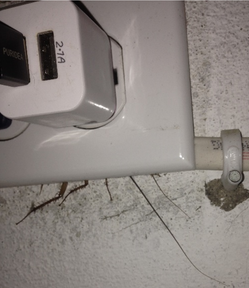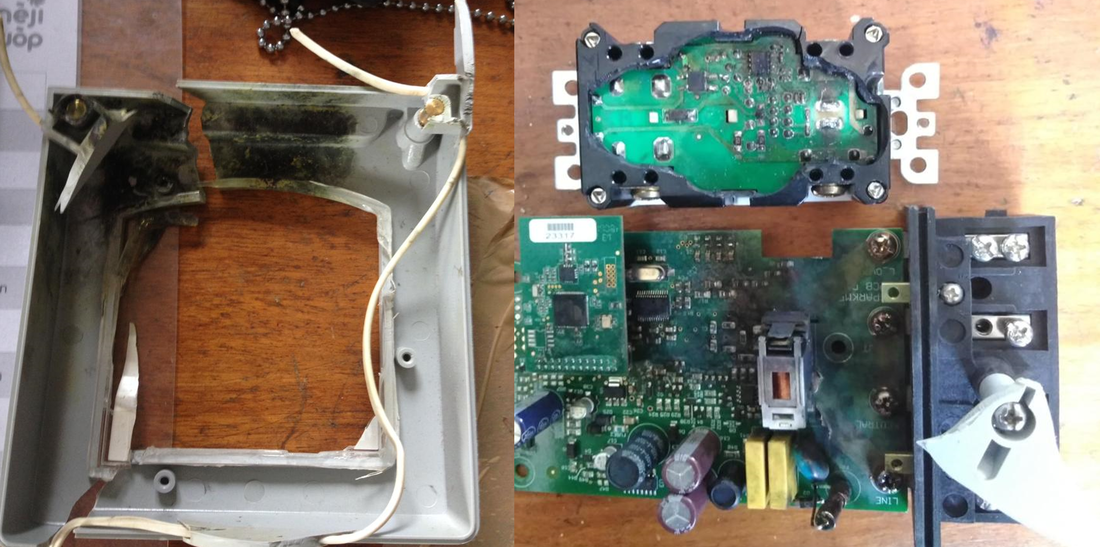Of Insects and Lightning: Unexpected Realities of Operating in a Challenging Business Environment11/26/2019  Beetle buried in electrical plug Beetle buried in electrical plug By Andy Bilich An audible crunch and a real (ok, maybe imagined) hiss are not what you expect when plugging in your phone, but that’s exactly what greeted me a few weeks ago when I accidentally squished a beetle inside my electrical outlet. Bugs are not exactly top of mind when you think of the business of solar microgrids, but over the past few months about 5% of customers have lost plugs due to the presence of ants and other insects. While the cost to replace an outlet is nominal, plug problems nonetheless interrupt service for customers and take technician time away from other work. Beyond bugs, lightning looms as another significant risk for microgrid operations, particularly customer meters. In the last few months 24 meters have been damaged by lightning strikes and surges. The meters range in price based on the level of electricity service they support, but even the most modest meters cost around $35 USD. Larger meters used for grid management cost upwards of $150 each. To account for these operational risks, EarthSpark stocks backup inventory, but more importantly the team must integrate technology, systems, and processes that proactively manage these risks. This includes surge protection devices, efficient protocol for responding to lighting strikes on our electricity poles and customer outreach and training on plug maintenance and protection. Microcosm of a challenging business environment for microgrids Of course, lightning and insects are a microcosm of a larger, more challenging business and operating environment for energy access in Haiti. Haiti is ranked 182 out of 190 countries in the World Bank Doing Business Rankings which systematically measures how difficult it is to conduct business in a given country across a variety of metrics. For Haiti, this difficulty is particularly reflected in commercial banking, the regulatory environment, and the cost of procurement of materials and land. Navigating these challenging yet essential business processes are all further complicated by the remote locations of EarthSpark’s microgrids, with limited infrastructure and high costs associated with transportation. When we hire a delivery truck, for example, we need to be sure it can navigate crossing the Les Anglais riverbed, and we work to time things so that the river is not too high to cross when the shipment makes the journey. The World Bank’s Scaling Renewable Energy Program (SREP) Investment Plan for Haiti highlights that renewable energy projects, and microgrids in particular, face additional operational challenges including but not limited to:
Derisking by doing Well aware of these challenges, EarthSpark is nevertheless moving microgrids forward in Haiti. We describe our approach as ‘de-risking by doing’. While good planning and critical thinking are essential elements of building a sector, only by building actual grids in real towns and having real-world conversations with policy makers and funders will we uncover the full set of challenges and their remedies. EarthSpark’s push for pioneering infrastructure is helping to determine how infrastructure is defined and regulated in Haiti and beyond:
0 Comments
Your comment will be posted after it is approved.
Leave a Reply. |
EarthSpark supporters make our work possible. Thank you for considering a donation towards eliminating energy poverty in Haiti.
Read the full blog - click here!
|
EarthSpark International is a non-profit 501(c)3 organization.

